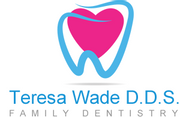A Guide to Dental Care During Pregnancy

The body goes through many changes over the course of pregnancy. In addition to common side effects like morning sickness, mood swings, and bloating, pregnant women are more likely to experience problems with their teeth and gums. Taking care of your oral health will help you achieve a healthier pregnancy, so here’s everything you need to know about seeking dental care while you’re expecting.
Why Is Dental Care Important During Pregnancy?
Most symptoms of pregnancy come from hormonal changes. In the mouth, shifting hormone levels allow bacteria to spread and grow much faster. This can increase your risk of gingivitis, the inflammation of the gums. An estimated 60–75% of pregnant women have gingivitis. If left untreated, it can progress to full periodontitis, or gum disease. This means serious infections, as well as the deterioration of bone that supports teeth.
High levels of progesterone and estrogen, common symptoms of pregnancy, can temporarily loosen the bone and tissue supporting your teeth. Combined with periodontitis, this can make your teeth loose. Gum disease is also linked to poor pregnancy outcomes, such as low birth weight and preterm birth.
Pregnant women who experience morning sickness, nausea, and vomiting expose their teeth to corrosive stomach acids that can break down their teeth's protective enamel coating. Worn enamel can result in dental sensitivity and an increased risk of cavities and decay. For these reasons, dental care is highly recommended throughout your pregnancy.
What Do You Need to Tell Your Dentist?

If you have an upcoming appointment, tell your dentist that you are pregnant. You should also disclose any medications or supplements you’re taking. Let them know if any changes have occurred since your pregnancy started. The dentist will check for and treat any problems, offer dental care advice, and help you maintain a healthy mouth.
Are There Any Restrictions for Dental Procedures?
While regular dental checkups are safe and highly recommended, there are some precautionary measures pregnant patients and dentists should heed. Cosmetic treatments, such as veneers and teeth whitening, should be saved until after you’ve given birth. Even if the risks are minimal, it is best not to take any chances.
Regular dental work, including fillings and gum disease treatment, can be completed safely at any time, but the second trimester is ideal. By the time you reach your third trimester, lying on your back for prolonged periods of time might become difficult and uncomfortable. If anesthesia is needed for the procedure, as little as possible will be administered. Your dentist may prescribe antibiotics to prevent or treat infection, which is considered safe for pregnancy. X-rays are usually postponed until after birth. If they are necessary for an emergency procedure, the provided lead apron will protect you and your baby.
For compassionate dental care in the Andrews, TX area, reach out to Teresa Wade DDS – Family Dentistry. Dr. Wade is a proud Texas-born, -raised, and -educated dentist with 40 years of experience serving the community. She and her skilled staff offer comprehensive dental care services for patients of all ages, from routine cleanings and exams to root canals and dental crowns. Learn more about services online and call (432) 523-7782 to schedule an appointment.
About the Business
Have a question? Ask the experts!
Send your question

